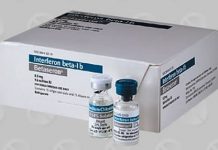STI; Sexually transmitted infections vary in severity of infection and ease of treatment, depending on the causative organism. Some sexually transmitted infections are merely annoying (e.g. pubic lice); others, if untreated, may be life-threatening (e.g. chlamydia and gonorrhea). And, some may be fatal (e.g. HIV/AIDS). Some sexually transmitted infections are relatively easy to cure (e.g. chlamydia, gonorrhea, syphilis); others are incurable (e.g. HIV/AIDS).
What most sexually transmitted infections do share in common is their occurrence worldwide and the manner in which infection is acquired.
Risk factors for acquiring a sexually transmitted infection:
- having unprotected vaginal, anal or oral sex,
- close skin-to-skin contact with an infected area anywhere on the body (e.g. pubic lice),
- sex with strangers or commercial sex workers,
- mother to child transmission through pregnancy and childbirth (e.g. HIV, gonorrhea, HBV),
- multiple sex partners,
- injection drug use or sex with injection drug user,
- sharing needles for body piercing and tattoos.
Treatment of sexually transmitted infections
Many sexually transmitted infections are easily treated, and treatment is organism-specific: the treatment used for chlamydia will not be effective against gonorrhea, and vice-versa. If you feel any symptoms, you may use a reliable STD testing kit to confirm if you have been infected. In some geographic locations, sexually transmitted bacteria have become resistant to antibiotics commonly used in treatment; therefore, what is effective treatment in one country or region, may be ineffective in another. In addition, sexually transmitted viral infections such as genital herpes, human papillomavirus and HIV may persist despite anti-viral treatment. However, you can still get treatment like Virtual Order PrEP Medication.
However, treatment for sexually transmitted infections do share one thing in common: all sex partners must also be treated to prevent further spread of infection, and reinfection. Having had a sexually transmitted infection generally does not prevent you from becoming reinfected with the same organism, or with a different sexually transmitted organism.
Other than HBV vaccine and HPV vaccine, there are no licensed vaccines to prevent infection with sexually transmitted organisms. Clinical trials are currently ongoing for a HIV vaccine, but it is too early to determine whether it will prove effective in HIV prevention. In the meantime, there are plenty of options for those suffering from this ailment. These options include HIV counseling, and as well as antiretroviral therapy, all of which are designed to help the patient live longer and healthier lives.
Prevention of sexually transmitted infections:
- Abstaining from sexual intercourse;
- Monogamous relationship with a partner tested and known to be uninfected;
- Consistent, correct usage of latex condoms during sexual intercourse;
- Prompt recognition and treatment of STD when it occurs;
- Annual chlamydia testing of sexually active women under age 25 and distribution of a free hiv test kit;
- Annual std test singapore anonymous of women older than age 25 with a new sex partner or multiple sex partners.
- If you start to experience STD make no delays and try STD testing in Portland to opt with the disease you’re facing with.












